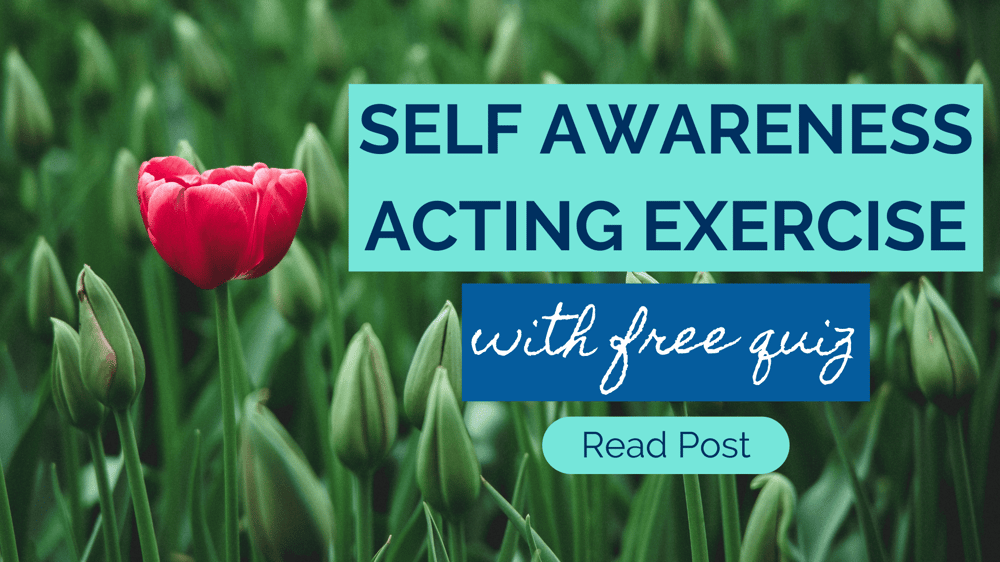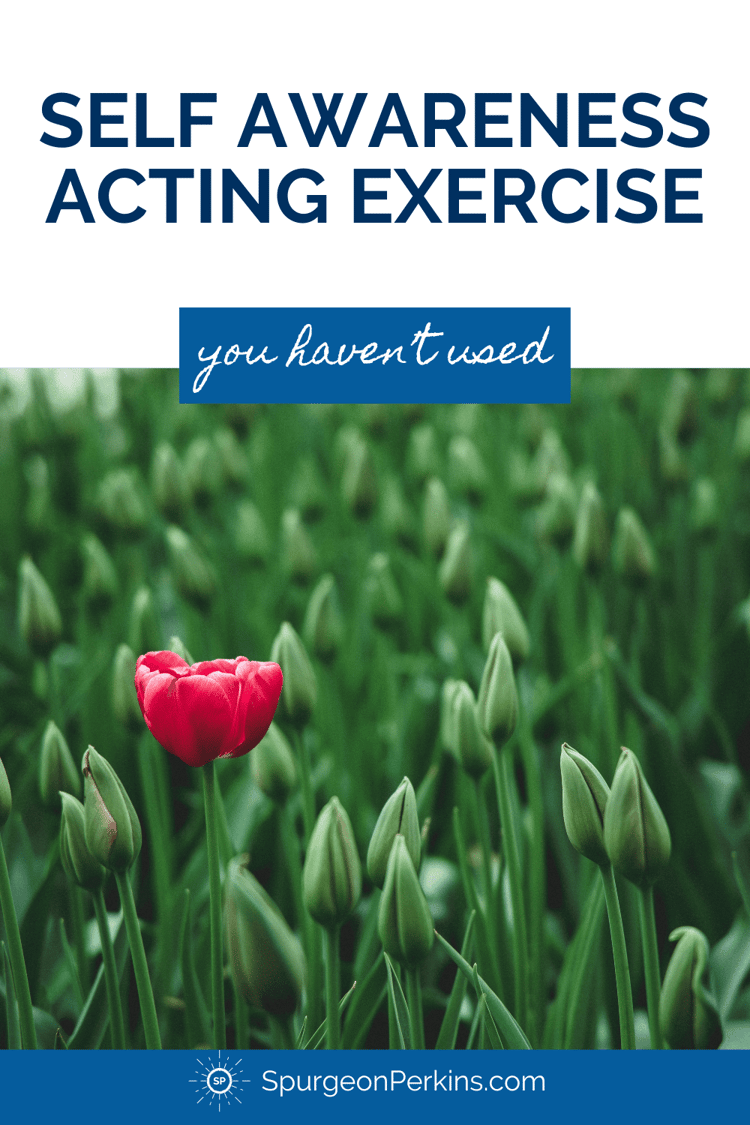HERE'S WHAT HAPPENED
I just love a good quiz. (I was a sucker for quizzes in Seventeen magazine back in high school.) I also took multiple science-based personality tests for the various leadership positions I've held over the years.
What I didn't realize was how much they impacted my self-awareness. That increased self-awareness led to increased confidence. Personality quizzes can be beneficial for us as actors to build our self-awareness and help us breakdown scripts in an authentic way.
I will caution you, however, that not every quiz out there is reputable or backed by science, so be careful. But if you're looking for how to get better at acting at home, keep reading.
In this post, I want to introduce you to a great reputable quiz called 16 Personalities. I’ll show you how to use your strengths and weaknesses to build your acting confidence and make strong acting choices in your scene work.
This quiz is very similar to Myers-Briggs if you’re familiar with that test. There's also an individual acting exercise included in this post showing you how to find the best acting tactics or acting strategies for your scenework.
5-STEP SELF-AWARENESS EXERCISE FOR ACTORS
1. TAKE THE FREE TEST
First, open up the 16 Personalities webpage in a new tab to take your free test. Try not to leave any neutral answers.
2. FIND YOUR TYPE
You should immediately see your results once you finish. True to its name, there are 16 potential types. Comment on this post to share your results. I'm an ENTJ, so I'll use that as our example to explain how to use your results specifically for acting.
3. CLICK STRENGTHS AND WEAKNESSES
You'll see a breakdown on the left sidebar with nine areas of exploration. For now, we'll only focus on one. Click Strengths and Weaknesses for our acting exercise.
Once you finish this exercise, you can go back through the other eight options to explore acting choices if you're playing a parent, employee, friend, etc. since those breakdowns show you strengths and weaknesses in each of those areas.
For example, I'm not a parent, so I could look through the Parenthood option to see what I would be like as a parent if cast as a mom.

4. FIND MATCHING TACTICS OR STRATEGIES
Now you need to explore your strengths and weaknesses in terms of tactics or strategies, based on your training.
In order to find your strongest choices, you need to look at your strengths and weaknesses together.
These results show that a strength of mine is Self-Confidence and a weakness is Impatience. I know in reality I like results, and I like to get them quickly. I process and filter information at a rapid rate, so if someone else is still thinking about their answer, I've already moved on to the next thing instead of giving them time to process.
So how does this translate into tactics or strategies? Here are a few options based on the example above:
Potential ENTJ Tactics (action verbs):
- to force
- to hurry
- to demand
Potential ENTJ Strategies (adverbs):
- forcefully
- abruptly
- demandingly
5. USE WEAKNESSES AS ACTING STRENGTHS
I mentioned in the example above that my personality type tends to leave people behind without giving them time to voice their thoughts. Once my brain gets a satisfactory answer, it feels rushed to solve the next problem and forgets about the other people involved.
While our weaknesses can be negative in reality, they are dynamite on camera because they create conflict.
If we were having an actual conversation right now, and I became demanding and forceful, you would walk away thinking I was rude. However, if I acted that same way in a scene, the sparks would fly on camera! This should simultaneously make you feel crazy and relieved as an actor.
While we need to work on our weaknesses for the sake of others and our social well being, we can totally be ourselves and let those weaknesses loose on camera regardless of how bad or ugly they make us.
Conflict drives our scenes and creates obstacles that make it harder for your scene partner to get their objective. Let's look at a few examples that cover a broad spectrum of personality weaknesses. Remember, we're using these to create conflict in the scene.
Personality weaknesses and the conflict they create in a scene:
- Impatient: constantly interrupts
- Lazy: doesn't respond to stimulus
- Shy: won't yell or fight
- Strict: doesn't like change
- Impulsive: constantly distracted
- Fearful: scared to engage
- Bossy: won't take advice or orders
Now let's translate these into strategies. You can use tactics as well, but for the sake of time, I'll use strategies since that's how I'm trained. Strategies are how you say your line to get your objective.
Acting strategies for these personality weaknesses:
- Impatient: quickly
- Lazy: nonchalantly
- Shy: quietly
- Strict: curtly
- Impulsive: distractedly
- Fearful: nervously
- Bossy: harshly
Let's take this exercise further with objectives. Remember, an objective is active, so we can't get someone to stop doing something. We need them to do something.
Potential objectives for these same personality weaknesses:
- Impatient: I want you to say yes (or no).
- Lazy: I want you to leave.
- Shy: I want you to whisper.
- Strict: I want you to stand up straight.
- Impulsive: I want you to answer me faster.
- Fearful: I want you to laugh.
- Bossy: I want you to agree.
Self-awareness is the foundation of a strong health and fitness goal. Learn how to set the best body goals for yourself in my free coaching guide. Click here to download 10 Camera Ready Obstacles and How to Overcome Them.
Here's another hard but effective acting exercise for you to try: ask the people closest to you to tell you what they think your personality weaknesses are or what you need to work on as a person.
Yikes. It's going to be hard. However, it will make you a better actor. While it's worth working on those issues for the sake of your relationships, you should use the mess outta them in your scenes.
For example, if they say you interrupt them too much, make an effort to stop interrupting them, but interrupt your scene partners and feel good about it!
If they say that you never seem to get excited about anything, then work on expressing your feelings to them more, but use that nonchalant attitude to drive your scene partners freaking crazy!
TAKE ACTION
You need your results to get started. Click here to take the quiz. It will open in a new page so you can click back here to comment with your results and questions.






Comments ()